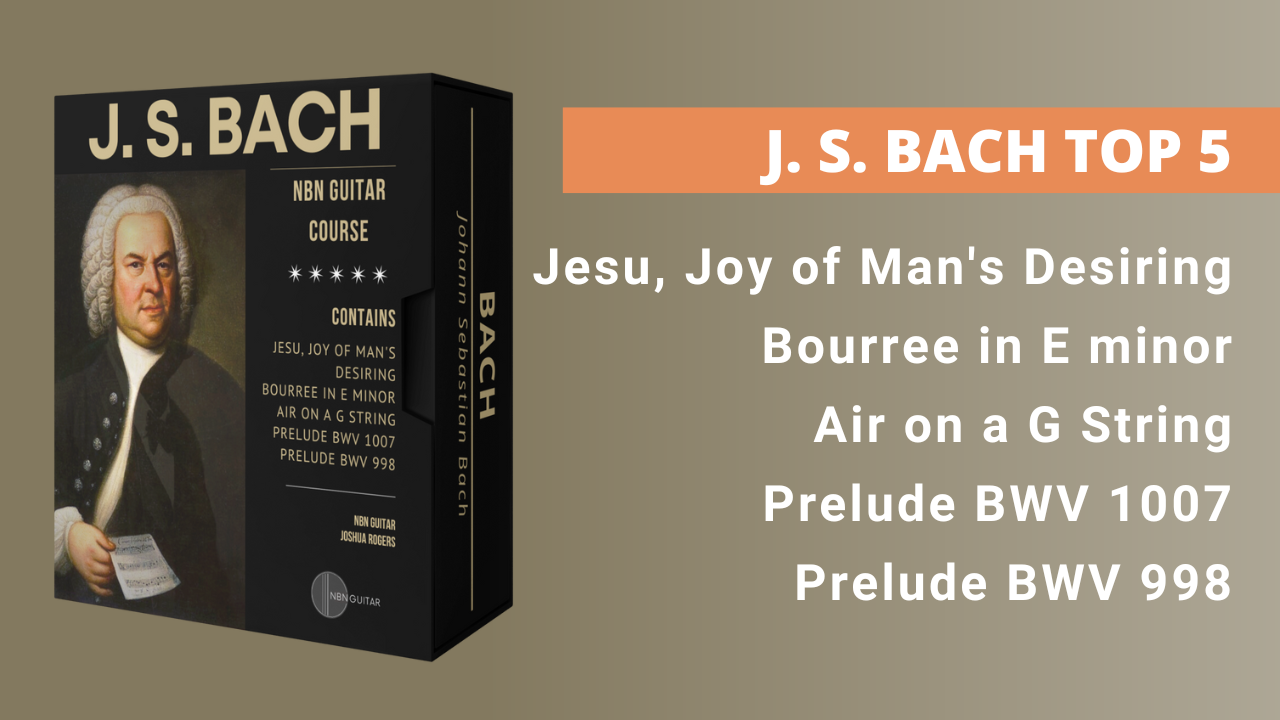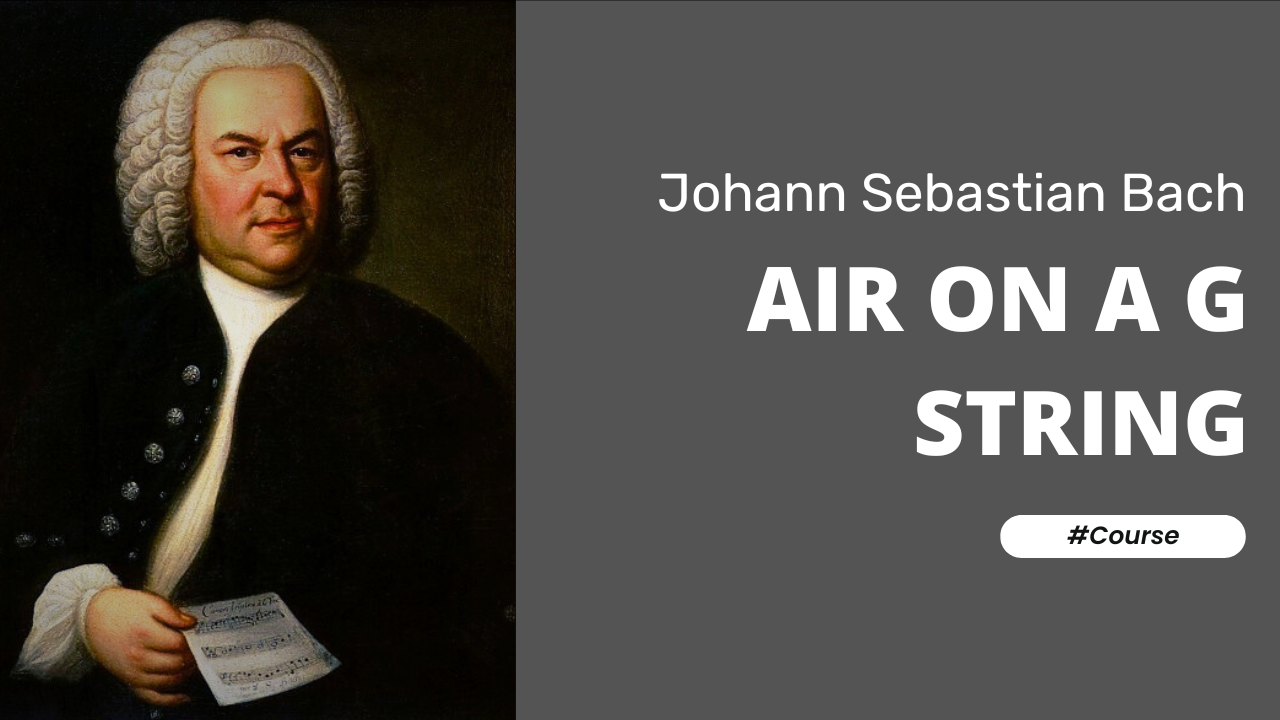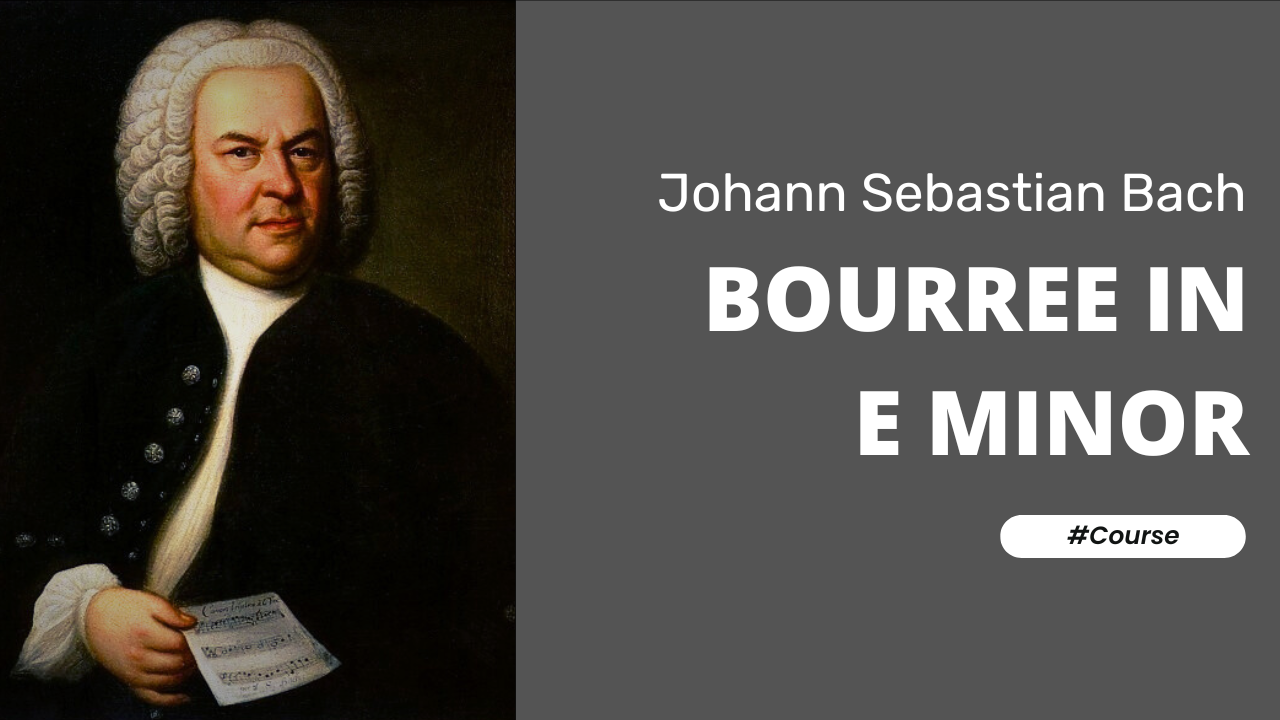Prelude BWV 998 by Johann Sebastian Bach
Introduction
I first heard this piece when I watched the John Williams documentary ‘The Seville Concert’ back in the mid-90s. After listening to him play it I immediately remembered that one of my classical guitar books had the piece in it, so I set out to learn it. Although the arrangement in the book wasn’t exactly the same as John’s transcription it was definitely close enough.
“Prelude BWV 998” by Johann Sebastian Bach is a magnificent piece originally composed for the lute but has been beautifully adapted for classical guitar, showcasing Bach’s brilliance in melody and harmony. The piece is set in the key of D major and typically performed at a moderately fast tempo, around 100-120 BPM. The Prelude is known for its lively and intricate arpeggiated patterns that require technical precision and fluidity. It features several key changes and modulations, which add to its dynamic and expressive nature. The work is part of the “Prelude, Fugue, and Allegro in E-flat major, BWV 998,” but the prelude itself stands out for its engaging and flowing character. Bach’s use of counterpoint and harmonic progression in this piece demonstrates his unparalleled compositional skill, making it a favourite among classical guitarists.
Performing “Prelude BWV 998” on classical guitar requires the sixth string to be tuned down a whole step to D. The piece’s structure allows for expressive interpretation, making it a rewarding challenge for both intermediate and advanced players.
Musical Style
Johann Sebastian Bach’s musical style is characterised by its complexity, structural clarity, and emotional depth. Bach mastered the art of counterpoint, creating compositions with intricate interweaving of melodic lines and rich harmonic textures. His works span a wide range of forms and genres, from fugues and preludes to chorales and orchestral suites. Bach’s ability to blend intellectual rigour with profound emotional expression has made his music timeless and influential, continually inspiring musicians and composers.
Notable Pieces
Five notable pieces by Johann Sebastian Bach:
• Brandenburg Concerto No. 3 in G major, BWV 1048
• Concerto for Two Violins in D minor, BWV 1043
• Goldberg Variations, BWV 988
• Mass in B minor, BWV 232
• The Well-Tempered Clavier, BWV 846-893
Let your fingers fly!
Josh
Course Instructor
Prelude BWV 998 Course
About this Course
Introduction
I first heard this piece when I watched the John Williams documentary ‘The Seville Concert’ back in the mid-90s. After listening to him play it I immediately remembered that one of my classical guitar books had the piece in it, so I set out to learn it. Although the arrangement in the book wasn’t exactly the same as John’s transcription it was definitely close enough.
“Prelude BWV 998” by Johann Sebastian Bach is a magnificent piece originally composed for the lute but has been beautifully adapted for classical guitar, showcasing Bach’s brilliance in melody and harmony. The piece is set in the key of D major and typically performed at a moderately fast tempo, around 100-120 BPM. The Prelude is known for its lively and intricate arpeggiated patterns that require technical precision and fluidity. It features several key changes and modulations, which add to its dynamic and expressive nature. The work is part of the “Prelude, Fugue, and Allegro in E-flat major, BWV 998,” but the prelude itself stands out for its engaging and flowing character. Bach’s use of counterpoint and harmonic progression in this piece demonstrates his unparalleled compositional skill, making it a favourite among classical guitarists.
Performing “Prelude BWV 998” on classical guitar requires the sixth string to be tuned down a whole step to D. The piece’s structure allows for expressive interpretation, making it a rewarding challenge for both intermediate and advanced players.
Musical Style
Johann Sebastian Bach’s musical style is characterised by its complexity, structural clarity, and emotional depth. Bach mastered the art of counterpoint, creating compositions with intricate interweaving of melodic lines and rich harmonic textures. His works span a wide range of forms and genres, from fugues and preludes to chorales and orchestral suites. Bach’s ability to blend intellectual rigour with profound emotional expression has made his music timeless and influential, continually inspiring musicians and composers.
Notable Pieces
Five notable pieces by Johann Sebastian Bach:
• Brandenburg Concerto No. 3 in G major, BWV 1048
• Concerto for Two Violins in D minor, BWV 1043
• Goldberg Variations, BWV 988
• Mass in B minor, BWV 232
• The Well-Tempered Clavier, BWV 846-893
Let your fingers fly!
Josh



